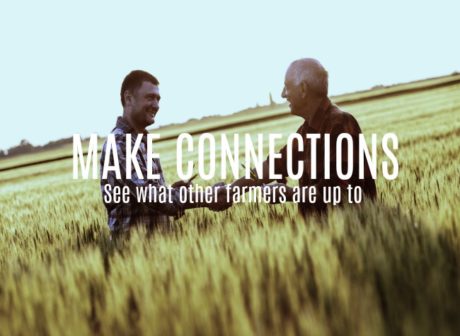After Sara breaks off the relationship and Chenille confesses their conversation to Derek, she apologizes for inserting herself saying, “You can’t help whom you love,” and contrasts the issues of her teenager motherhood because of the implied bliss of their relationship with Sara. By connecting the 2 sentiments, the movie unintentionally reveals from having a loving relationship that it is punishing Chenille for her views by preventing her. The film sees her mad rejection of the white girl “stealing” A black man being an unfounded belief which should be corrected; in reality, Sara and Derek are cheerfully straight back together by the end of this movie. Chenille isn’t permitted to merely bristle at their relationship, she must instead be considered a single teen mom who is humbled because she can’t obtain the father of her kid to cooperate, leaving her jealous and bitter that the white girl will find joy in an environment which has brought her discomfort. Again, the approach that is color-blind love is wholeheartedly endorsed, even though the Ebony ladies who reject it are situated as aggravated, jealous, and violent.
A 2021 bout of Atlanta provides probably the many example that is egregious. In “Champagne Papi,” Van (Zazie Beetz) and her buddies go to a house that is exclusive supposedly hosted by Drake in order to meet https://besthookupwebsites.org/localhookup-review/ up with the rapper and acquire a photograph for Instagram. While there, her friend Tami (Danielle Deadwyler) accosts Sabrina (Melissa Saint-Amand), the white gf of a Ebony male actor attending the celebration, loudly chastising her for “saddling up along with her Black man accessory” and telling her that she actually is tired of the cliched story. Bewildered, Sabrina insists that she’s only a good girl who found good guy, which only invokes more unhinged ranting from Tami, detailed with swearing, uncomfortably long stares, and gesticulation that is wild. Naturally, Tami is a Black that is dark-skinned woman normal locks, and Sabrina is blond and soft-spoken.
Why is the scene so jarring is the fact that absolutely nothing Tami states during the connection is wrong. She talks about Sabrina’s privilege at to be able to “invest early” in a relationship with a man who may have absolutely nothing while the disparate ways “good Black women” are viewed in society. Everything she states to Sabrina is just a reflection that is true of ladies’ experiences, and yet by deciding to make her delivery so comically overblown, Atlanta dismisses her and her frustration over the intimate politics at play out of hand. The show chooses to possess her berate a stranger that is literal her dating alternatives, totally absent any context for either party.
In reality, Tami’s initial response earlier in the day within the episode upon seeing the famous actor with a white girlfriend is, “He could be with a white girl,” priming the viewers to see the later confrontation as illogical and baseless; her reaction is presented much less a regrettable mixture of intoxicants and built-up social resentment but an unfounded envy of a white woman’s Ebony partner. It’s a scene that rankles precisely because it is so cliche. With Atlanta’s history of upending and subverting tropes, the interaction seems flat and unexamined; you’ll find nothing subversive in just replicating a harmful label. Along with her aggressive approach and wild-eyed stare, the show presents Tami as being a figure to be laughed at and mocked rather than a woman reasonably pointing out of the truth about the racial dynamics of interracial relationship.
With all that historical and cultural luggage in play, what makes Malika’s encounter with Isaac in “Swipe Right” notable is not just that the story allowed her become right about their unspoken intimate choice for white women, but without flattening her into a stereotype of an irrational or jealous Black woman that it gave her the language she needed to articulate that fact to him. Good difficulty didn’t just reduce her suspicions and insecurity to “bitterness” as so often happens. Rather, Malika is permitted to express her hurt at being refused on her behalf dark epidermis, and is rewarded on her sincerity and understanding having a sweeping gesture that is romantic acts both as penance and a mea culpa. She is permitted to have her happy ending without ever having to compromise her politics or accept implicit terms she gets that she is less than, or should be grateful for whatever attention.
Exactly What Good Trouble gets right in its examination of this dynamic is the fact that Black females’s feelings about Ebony males dating white women are complicated and not simply rooted in bitterness. Covered up in what, yes, possibly often be residual jealousy, is the learned knowing that our Blackness renders us inherently undesirable even towards the men whom appear to be us. Men whom develop with Ebony mothers, aunts, sisters, and cousins become men who denigrate the really ladies who nurtured them. It goes without saying Malika later needs to confront head-on when old movie areas depicting the unlawfully killed young Ebony guy for whom she’s looking for justice, making offensive and disparaging remarks about Black women and their fitness as intimate partners. It’s really a reality that is hurtful she’s forced to face: way too frequently black colored women appear for Ebony men without reciprocation. The most susceptible people regarding the motion are kept to complete the lifting that is heavy everybody else.
“Swipe Right” takes great problems to validate exactly what Malika is feeling rather than suggests that she actually is overreacting or being extremely sensitive and painful to make a justified presumption borne away from her very own life experience. In addition avoids the trap of showing Isaac’s curiosity about light-skinned Black ladies alone; doing this would have just fortified the most popular colorist argument that dark-skinned Ebony ladies are uniquely unwelcome because these are typically hard or “unmanageable” and that Isaac was directly to avoid her because she actually is judgmental or aggressive. Furthermore, her frustration is strengthened, affirmed, and echoed by her own chorus that is greek of women, her best friends Yari (Candace Nicholas-Lippman) and Tolu (Iantha Richardson); a well known fact that is notable in and of it self, given the news’s tendency in order to make Black women “the only one” in just a show’s orbit. Between your three ladies, the show takes Malika’s tenderness at her rejection really and treats it as something worth genuine consideration, affirming and legitimizing the situation of raced and gendered intimate stereotypes as a truthful experience that many Ebony females encounter in their dating everyday lives.
It’s really a refreshing brand new framework for how this well-worn conversation can unfold, that makes a point to focus Ebony women’s perspectives about their romantic invisibility, in place of positioning them as sounding boards against which to justify their exclusion as intimate prospects.
Good Trouble Season 2 returns tonight, June 18.








0 responses on "Exactly What Good Trouble gets right in its study of this dynamic is Ebony women's feelings about Black guys dating white women can be complicated and not rooted in bitterness"